News articles
- Tackling Real World Problems: Impacts, Observations, and Challenges after Seven Years of the Environment Corps. Invited AAAS-IUSE Blog Post. 06/16/25.
- UConn Students Empower Community Resilience, One Project at a Time. UConn Today, 03/10/25.
- For CT towns struggling to deal with flooding, help is on the way. CT Mirror, 11/30/23.
- E-Corps: Building Skills and Bolstering Environmental Efforts Across Connecticut. UConn Today, 5/16/23.
- Provost recognizes faculty, staff, and students for community engagement. UConn Today, 11/01/21
- Connecting Towns and UConn Students: The Environment Corps. Connecticut Planning, magazine of the American Planning Association, Connecticut Chapter, Fall 2021.
- Their Efforts will Impact the State, and the World, for Decades to Come. Article in UConn Today newsletter, 7/23/21.
- Throwing Nitrogen Out with the Stormwater: UConn Extension Educator, Team Helps Coastal Communities Reduce Runoff Pollution. UConn Today, 7/08/21.
- IUSE Builds Community Around Improving STEM Education, AAAS News, 4/01/2021
- Connecting Towns and UConn Students: The Environment Corps, CLEARScapes newsletter, Winter 2020 edition.
- From “rain bombs” to “sunny-day flooding,” climate change has become local, Hartford Courant, 11/03/2019.
- UConn Receives NSF Grant for “Environment Corps” Project, UConn Today, 7/28/19.
Recorded Presentations
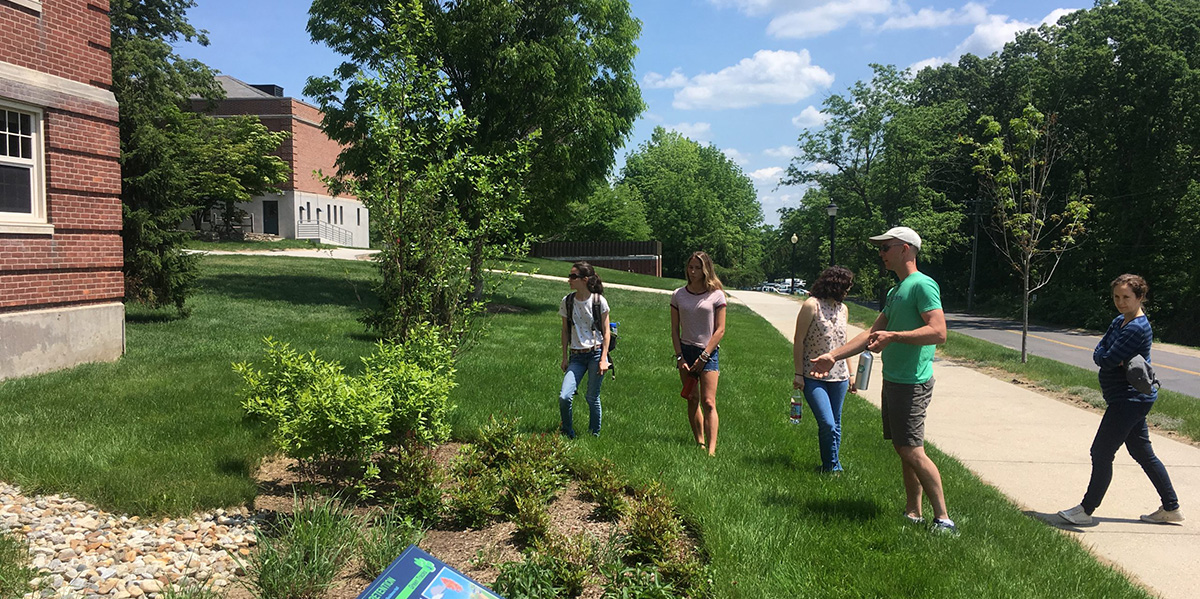
UConn Climate Corps: Climate Adaptation Projects in Communities, September 26, 2024
Owen Placido, CT Sea Grant; Renata Bertotti, UConn Center for Land Use, Education, and Research
Abstract
The UConn Center for Land Use Education and Research (CLEAR) and Connecticut Sea Grant present this webinar about the Climate Corps program – where undergraduate students learn from extension professionals and apply that knowledge to climate adaptation projects with municipal or community partners throughout the region. We will hear from former students about their experience in the program, and a community partner from the Alliance for the Mystic River Watershed will speak about how working with the Climate Corps has benefitted their organization. Learn more about our program and how we could partner with your organization!
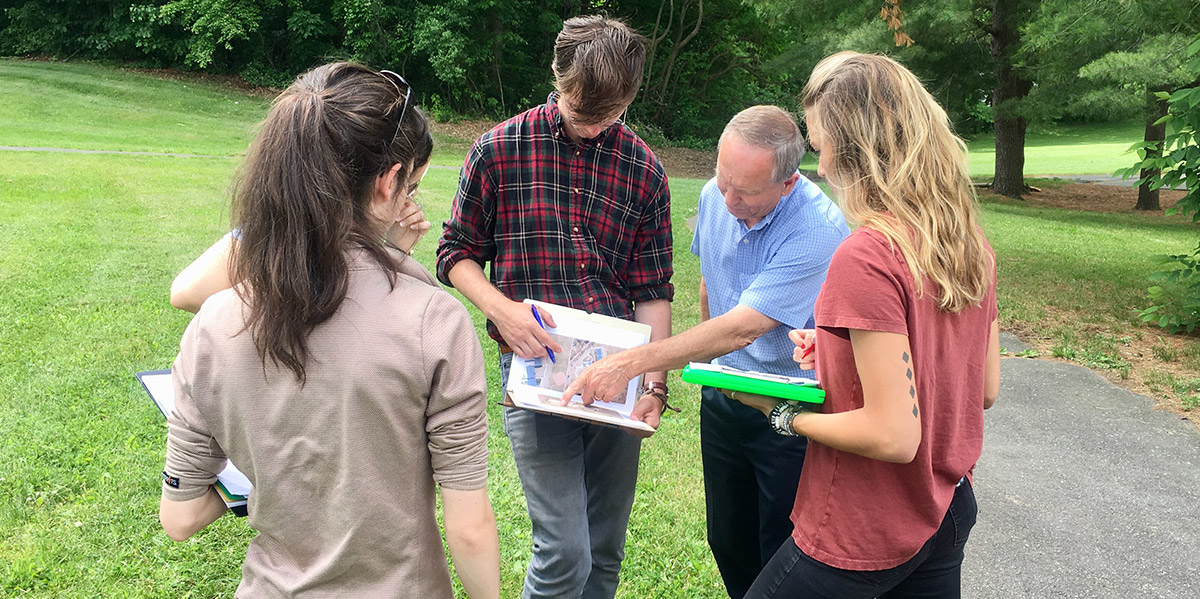
UConn Environment Corps: Harnessing Student Power to Help Towns, March 25, 2020
Chet Arnold, Director, Center for Land Use Education and Research, Dept. of Extension, UConn
Abstract
A UConn faculty partnership that reaches across departmental and college lines is engaged in an effort that seeks to enhance, expand and institutionalize a new model for community engagement at the University. The “Environment Corps” combines the familiar elements of classroom instruction, service learning and Extension outreach in a unique way that provides “real world” experience for students as they prepare for the work force, while helping communities respond to complex environmental mandates. Students enroll in a semester of classroom instruction that focuses on the impacts and issues involved in an environmental problem at the municipal level. Case studies, news articles, guest lectures by practitioners, field visits, and group projects are used to provide a local framework for the class. Students can then choose to enroll in a practicum course during the following semester, where they form teams that work directly with municipal officials from Connecticut towns. The initial pilot effort, funded by an internal UConn grant, created the Climate Corps, now finishing its third year. It was joined in the following year by the Brownfields Corps, and the Stormwater Corps in Spring 2020. To date, 39 town projects have been completed. The challenge moving forward will be to institutionalize this approach at UConn by making it an attractive and viable option for instructors.
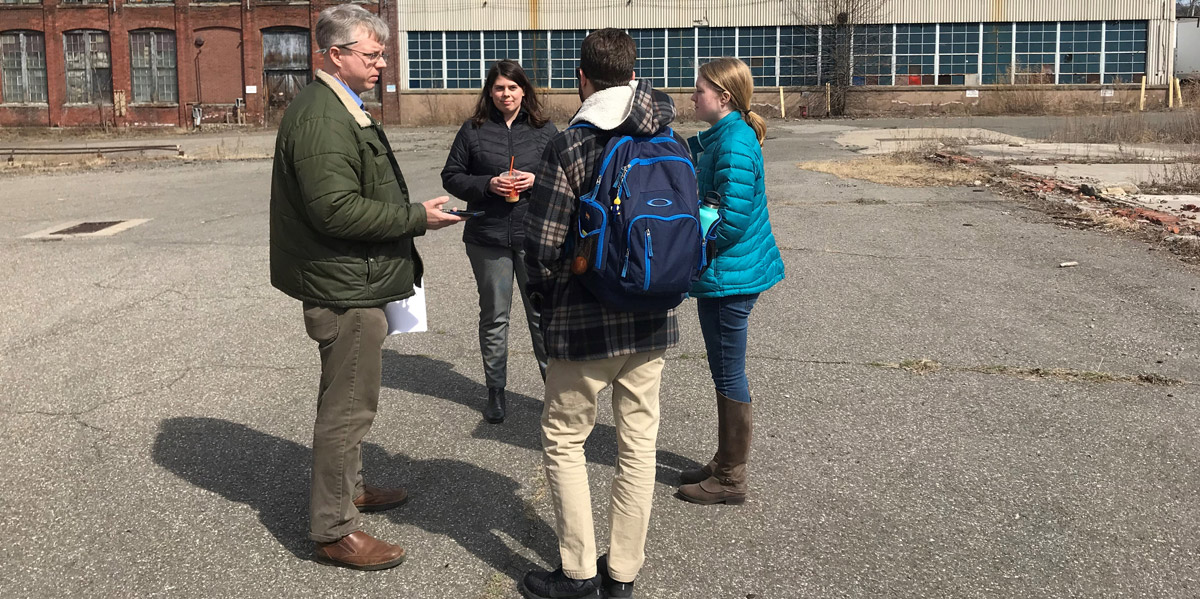
Path to brownfield redevelopment: the Municipal Assistance Program (Brownfields Corps) of the Connecticut Brownfields Initiative, April 22, 2020
Dr. Nefeli Bompoti, Project Manager, Connecticut Brownfields Initiative, Dept. of Civil and Environmental Engineering, UConn
Abstract
The Connecticut Brownfields Initiative (CBI) is an educational and community support program with a mission to promote brownfield redevelopment in the State of Connecticut. CBI operates within the University of Connecticut and provides training and support for CT stakeholders on brownfield remediation and redevelopment. Our educational program creates a workforce of skilled graduates with hands on experience on brownfields. The initiative enables public-private industry, academia and government to collaborate in solving brownfield remediation and redevelopment challenges in CT.
In this webinar, you will learn about:
- Brownfields projects we support
- CBI’s Fall and Spring Municipal Assistance Program
- Recent success stories
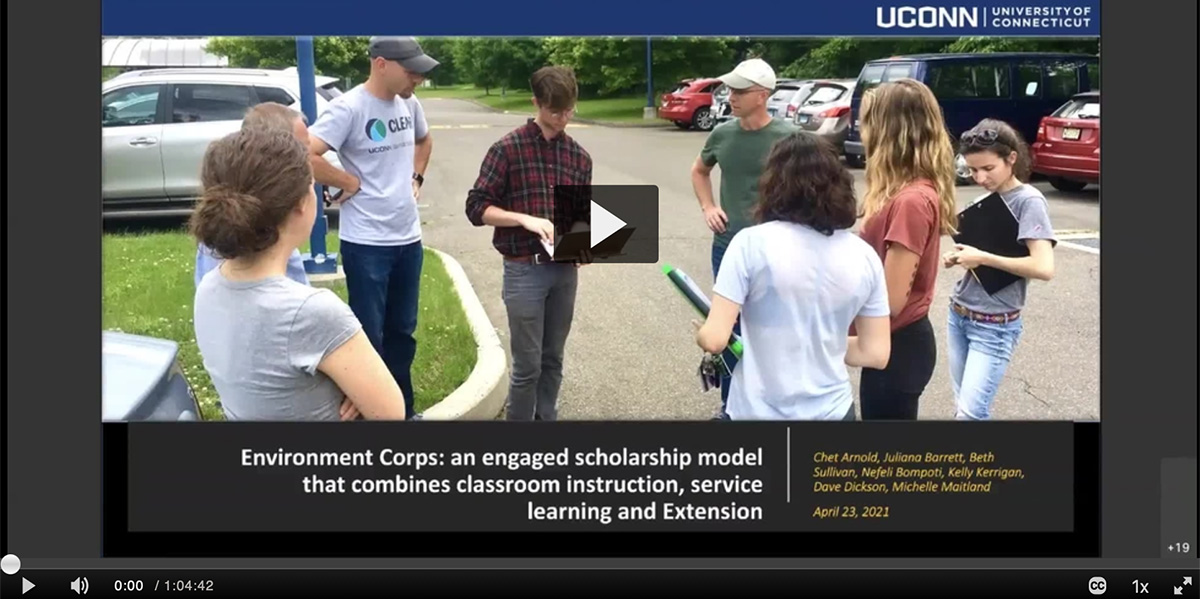
Chet Arnold, Director, Center for Land Use Education and Research, Dept. of Extension, UConn
Barrett, J., Bompoti, N., Dickson, Sullivan, B., Kerrigan, K., and Maitland, M.
Abstract
UCONN CETL Workshop highlighting a partnership at UConn that reaches across college and departmental lines is engaged in a project that seeks to enhance, expand, institutionalize, and study a new model for experiential learning and community engagement. The model, called the Environment Corps (“E-Corps”), combines familiar elements of classroom instruction, service learning, and extension outreach to create a method of engagement that aims to benefit students, faculty, surrounding communities, and the university community itself. In this second session in a 2-part series (the first was not recorded) focused on building community partnerships and designing appropriate student projects, including several examples from instructors and our municipal “clients.”
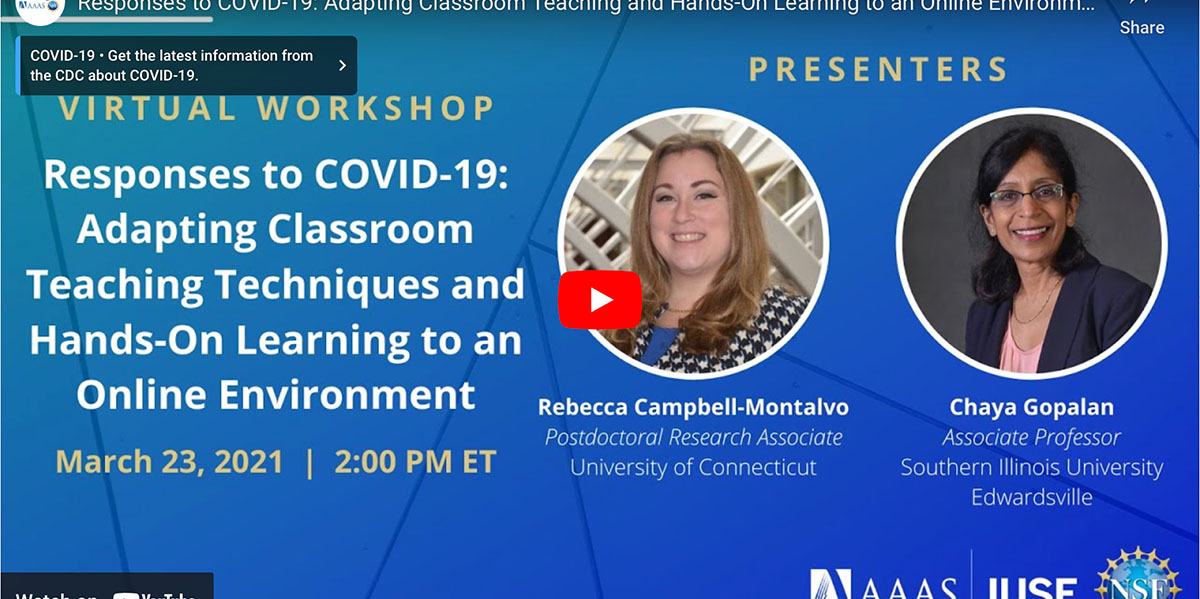
Responses to COVID-19: Adapting Classroom Teaching Techniques and Hands-On Learning to an Online Environment, March 23, 2021
Dr. Rebecca Campbell-Montalvo, Postdoctoral Research Associate, UConn
Dr. Chaya Gopalan, Associate Professor, Applied Health, Primary Care, and Health Systems, Southern Illinois University Edwardsville
Abstract
How can we adapt STEM courses to the online environment without missing out on the benefits of hands-on learning or strong teaching techniques used in-person? In this workshop hosted by the AAAS-IUSE Initiative, speakers share their research and experience transitioning their courses online. First, researcher Dr. Rebecca Campbell-Montalvo shares how to pivot STEM service-learning courses to an online environment by sharing her research from the University of Connecticut’s environmental service corps’ move online. Afterwards, Dr. Chaya Gopalan discusses how she used flipped teaching techniques in a remote environment. Overall, the workshop serves as an opportunity to explore successful strategies for transitioning STEM courses online while continuing to engage students.